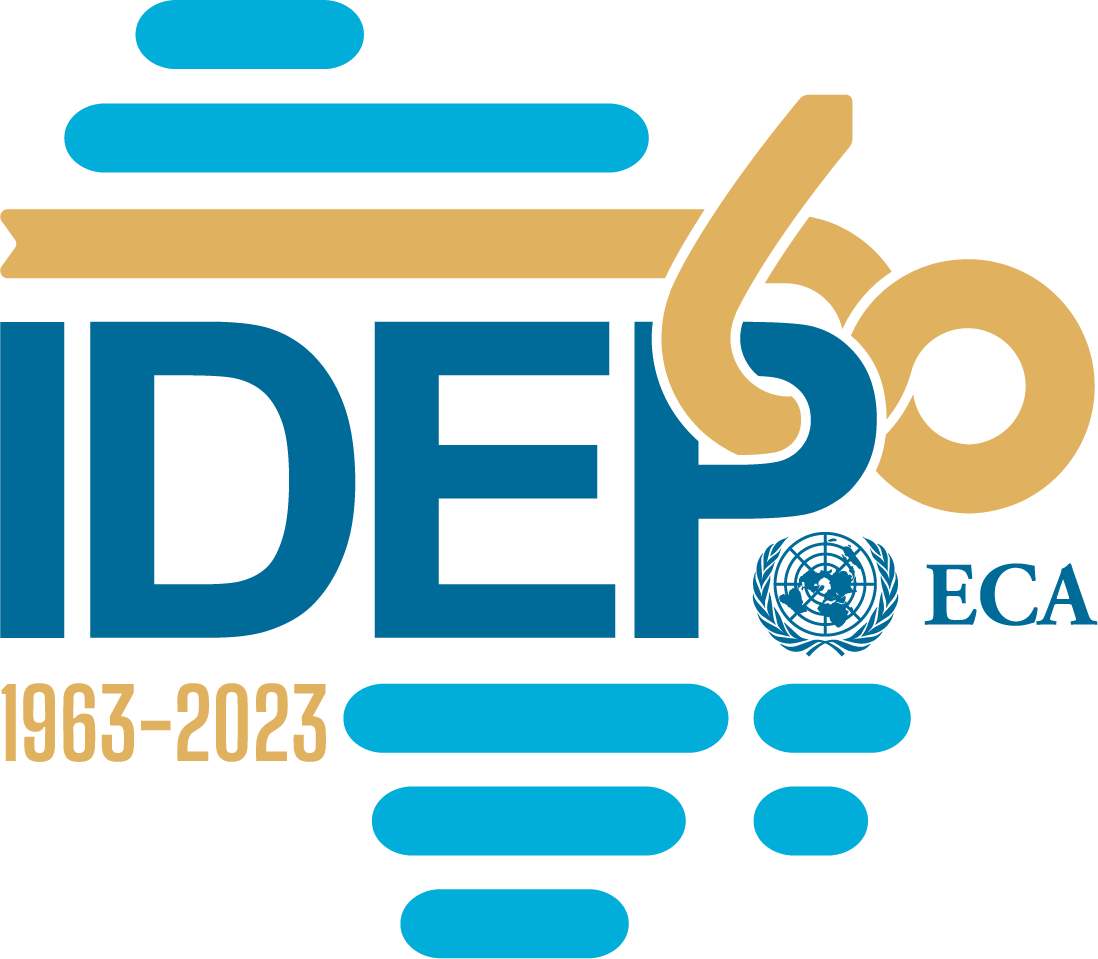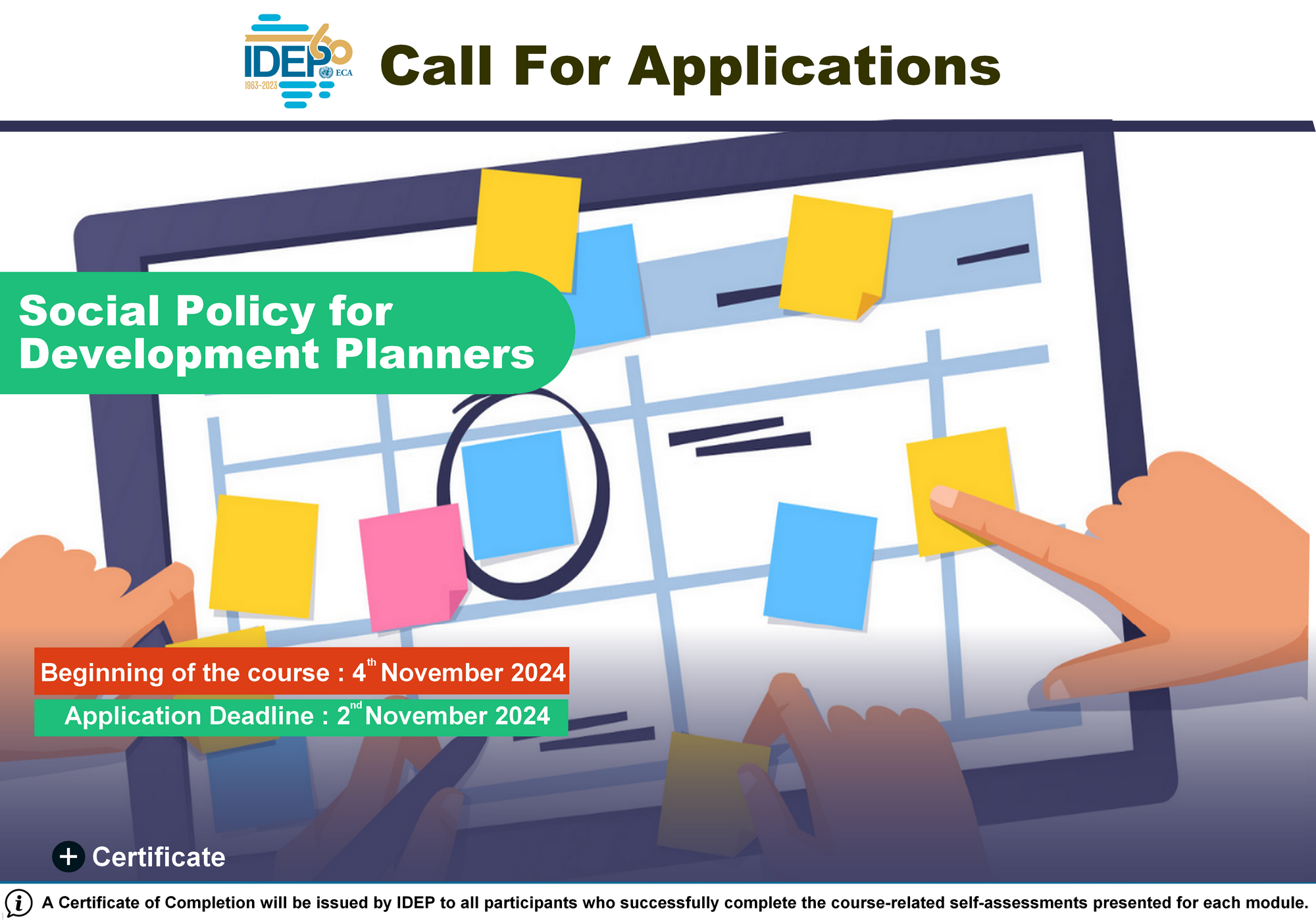Social Policy for Development Planners
Announcement in Brief
|
Programme Rationale
As a region, Africa has seen remarkable progress in socio-economic development in the past two decades. It still experiences, however, high levels of poverty and inequality, food insecurity and malnutrition, high maternal and child mortality, high levels of informal employment, conflicts and the impacts of climate change.
The COVID-19 crisis has hit the poorest and most vulnerable hardest and laid bare structural shortcomings such as inadequate health, educational and technological infrastructure, limited social protection, gender inequality, large informal economies, lack of access to basic services, constrained fiscal policy space and a high risk of debt distress in many countries, making them particularly vulnerable to the lasting effects of the pandemic. African countries have realized the need to scale-up social protection programmes and measures to meet the challenges brought about by the COVID-19 crisis as well as to ensure preparedness for other unexpected future events. Thus, they have introduced or adapted over 200 social protection and labor
market policies in response to the pandemic.
Objectives
The overarching objective of the course on “Social Policy for Development Planners ” is to contribute to the development of a critical mass of highly skilled middle and senior development officials and decision makers who have a strong social policy consciousness and orientation, and who will be suitably or better equipped to design and manage development plans in which social and economic policies and strategies are fully interfaced to deliver the kinds of transformative outcomes desired; especially to face the world’s multiple shocks and ongoing crises.
By the end of the capacity-enhancement training programme, the participants are expected to have acquired:
- A robust understanding of the history, diversity, and conceptual underpinnings of social policy;
- A strong appreciation for the interconnections between economic and social policy, and economic development objectives and social development outcomes;
- A full appreciation of the value of integrated and holistic public policymaking;
- An understanding and appreciation of the multi-dimensionality of social policy instruments and social policy functions, including, in particular, the ways in which social policy instruments produce multiple outcomes;
- A robust capacity to design social policy instruments for implementation;
- Skills for assessing and evaluating competing social policy instruments, their strengths and limitations; and An improved knowledge of Social Policy in the international compacts to meet the SDGs and Agenda 2063.
- Tackling Social Policy in a Context of Uncertainty and Crises


